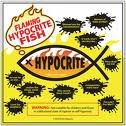In this section of Fanon, Thomas finally seems to have once again taken the narration, now telling us more about our legendary Fanon. As a revolutionary who is relatively unknown in our country, the assumption is generally that, since one has never heard of him, he must have been a tragic martyr. This is not the case with Franz Fanon, who, "unlike most of his fellow dreamers and revolutionaries of the sixties, Fanon was neither gunned down, nor served time in prison" (163). The idea we have of people who fight for their causes getting killed or arrested is not one without a solid foundation, perhaps implying that Fanon was cleverer or at least luckier then others. Thomas (the fictional writer of the book), goes on to say that this is something that effectively sets Fanon apart from others. He writes that, "thus his life evades those myths so handy for settling accounts" (164). Thomas sees Fanon as an individual who shouldn't be cast aside so quickly into meaningless and categorical stereotypes. When we take the time to delve into the lives of others, we can see better who they truly are.
Another way that John Wideman and Thomas write of Fanon's individuality is through his childhood. Shipped to a small village on the French controlled country of Martinique, the country in which he was born, he was a "stranger in a strange land. Fanon a city kid exiled to the country. The only one of his race in classes and extracurricular activties" (165). His parents' idea of rescuing him and his brother from the place they grew up was to send them away to somewhere totally alien where they were outcasts. He saw this sort of rejection again, later in life in Algeria and was moved to action. Thomas writes that he "must have remembered...when he decided to write about how some groups of people control the lives of other groups of people" (165). His childhood experiences helped to make Fanon an individual and shape his future.
skip to main |
skip to sidebar

This page is possibly the most awesomely cool EE10 blog ever made by any single person named Vivian Ha.
Link and Ike Caramelldansen


2 comments:
Perhaps a martyr in the modern world is no longer someone who died for their cause. It's used loosely enough to make the highest fighters martyrs even if they don't go down.
I think the statement that your childhood really makes who you are is true. Children usually follow their parent's political and spiritual beliefs. People who grow up without some person they can trust (it's not clear from you post in this case) can sometimes fight for something to gain a "family." Sometimes this is good, like this case; but it also can be applied to gangs as well.
Post a Comment